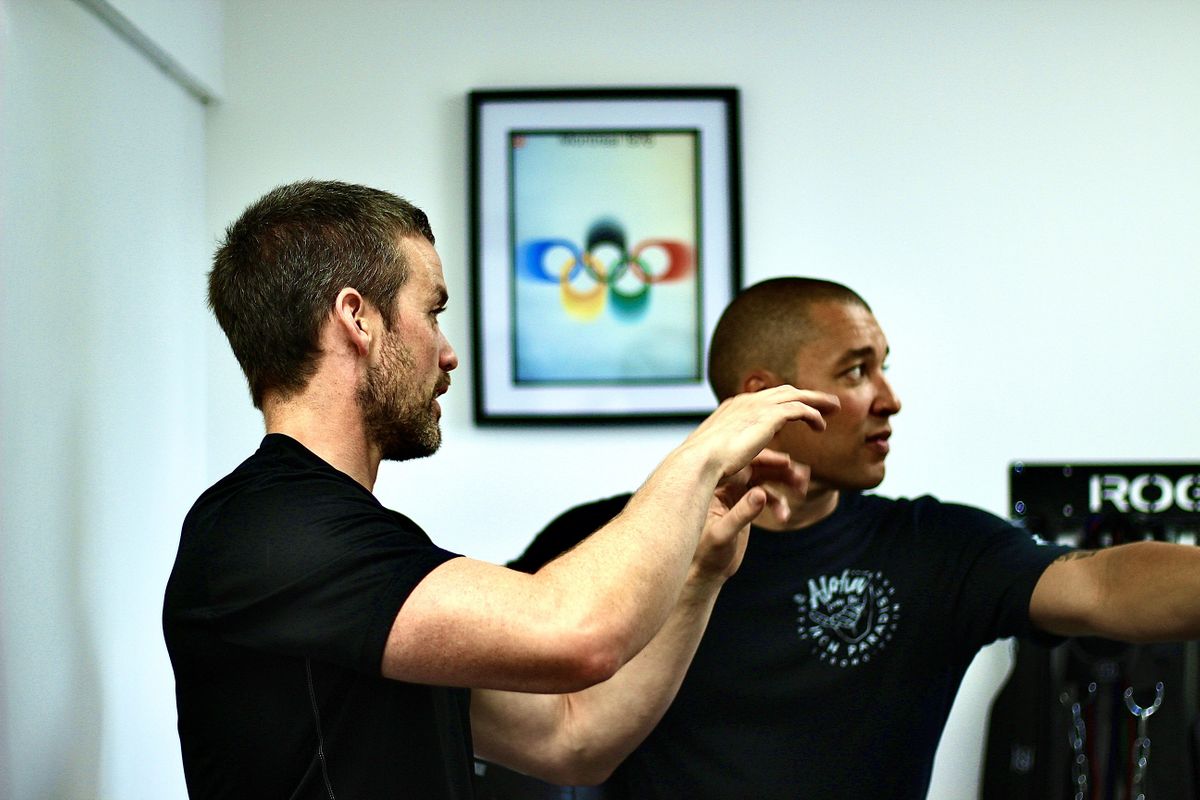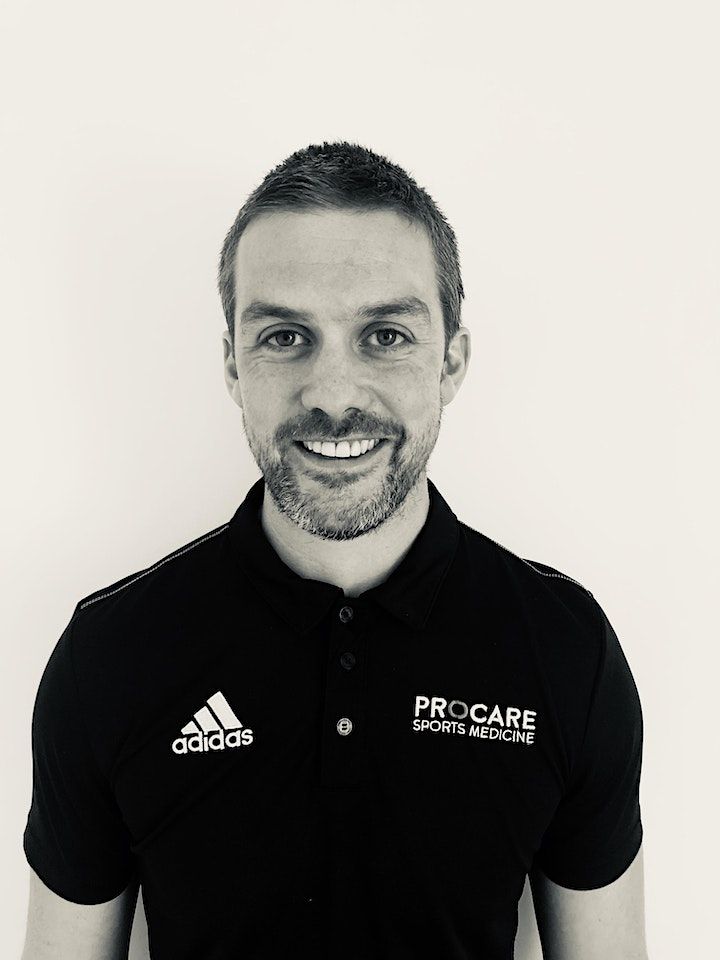
About this Event
Course Summary
Over the past decade there has been a significant rise in the popularity of strength and conditioning in the therapy world. As a result of this popularity, there have been suggestions that there is a shortfall of focused education at undergraduate level, specifically within the physiotherapy profession. This has potentially led to a reduction in knowledge and confidence when applying basic rehabilitation principles.
The idea that S&C is the new panacea in therapy has come under deserved criticism, due to a lack of robust evidence with its effect on managing pain in comparison to other therapy modalities. This raises important questions, such as: when does it matter and how can therapists best apply these principles?
Exercise compliance, adherence, commitment etc. are terms that are commonly used in the therapy and rehabilitation world. There is often debate on whether we should even call it compliance, considering it is something that both the therapist and the patient should do in collaboration; rather than a patient being or feeling instructed to do something, like a ‘therapy dictatorship’.
The evidence around adherence to exercise rehabilitation is unfortunately poor and wide ranging across both sporting and non-sporting populations. It can be as low as 30% in some studies. So why is this? What are we doing as therapists to address it? It is a huge problem because as we know, the best exercise is the one that gets done, right?
This course is aimed at therapists (working across all sectors) who want to cut through the noise that surrounds these key topics and give practical advice in accordance with the current evidence, so that a clear learning journey can begin. There is a strong emphasis on coaching, behaviour change and mindset.
The 4 hour practical will look at exploring coaching cues, squat, hinge (deadlift), push and pull movement patterns. There will be a focus on how to coach the patterns, regress and progress them for your patients who have pain. The other practical will look at the use of dynamometry and force plates in diagnosis and rehab design.
Specifically, Andrew will explore:
• Should physios be trained in strength & conditioning?
• What are the basic principles of S&C & how can we apply them to rehab?
• What are the fundamental movement patterns & why are they useful?
• What the hell is the force velocity curve & why does it matter?
• How to measure force & when does it matter?
• Mind muscle connection, is this a myth?
• Internal and external coaching cues, does it differ with strength training?
• Can we use S&C principles to modify symptoms?
• What is the difference between strength & power & why is this useful to know?
• What are the different types of strength & why does this matter for rehab?
• Reps, sets and recovery, when does this matter?
• Practical guidelines in strength prescription for therapists to use immediately.
• What are some of the advantages with having S&C training?
• Understand how to enhance your exercise prescription reasoning.
• Why understanding the science of coaching can lead to better results?
• Understand why environment, language and coaching is more important than the actual exercises themselves.
• Understand the art of ‘buy in’ and how you can help patients adhere to your programmes.
• What has understanding ‘mindset’ got to do with exercise commitment (hint: it’s not just the patients ‘mindset’)
• Communication strategies to help boost exercise commitment (Hint; it’s not shouting louder like in a foreign country btw!)
• Why often doing less is more but sometimes why doing more is important too.
• Why language is not just important for pathology.
• Why understanding ‘mindset’ & human behaviour helps with exercise dosage i.e. sets, reps, intensity, rest.
• How to build resilience early and reduce kinesophobia with your patients.
• Discover what patients really want and learn the art of goal setting.
• Why goals don’t have to be S.M.A.R.T.
• How managing will power can help with reducing volume/load in athletes who struggle to de-load.
Course content
Why is S&C relevant to therapists and how to implement basic principles into rehab programmes.
Topics include:
- What is strength?
- What are the basic principles?
- Understanding the force velocity curve
- What is power?
- Measurement.
- Sets and reps (dosage)
- Coaching cues for pain, performance & strength
- Patient examples
Break
Practical session on dynamometry testing including force plates looking at peak force and rate of force development.
Lunch
The art and science of coaching and why it is often more important than the exercise itself.
- Evidence around adherence and commitment to rehab.
- How effective communication is essential for patient adherence.
- How does the environment affect patients?
- Why empathy & emotional intelligence is a must for therapists.
- Does trust matter and how can we build it.
- The science behind hope
- How to build autonomy and why it is essential for a successful rehab including return to sport.
- How does language affect patient behaviour?
Day 2
Practical session including how to train fundamental movement patterns in people with and without pain to help with rehab and performance. We can discuss how rehab programmes can be adapted for the patients regardless of level or age. We discuss intensity, load, and dosage. Delegates will feel confident with all of the patterns below at the end of the session.
- Squat
- Hinge
- Push
- Pull
- Other
Lunch
Mindset & Goal setting (building from day 1)
- Why patient and therapist mindset is so important to understand if you want to get good results.
- Case examples: illustrating common problems therapists face when patients do not adhere to programmes and how we can change this.
- Simple psychological interventions we can use to help our patients and ourselves as therapists.
- The science of willpower and how we can help our patients manage this for better outcomes.
- Goal setting and what really works (they don’t have to be SMART)
- Why discovering what patients want or value is essential for commitment to rehab.
- Tips on habit formation
- Patient examples on strategies learned on course.
Presenter bio:
Andrew is a highly experienced and specialised physiotherapist in musculoskeletal and sports medicine. He currently divides his time between ProCare Sports Medicine (www.procaresportsmedicine.com) and working as an extended scope practitioner in hips, knees and shoulders.
He has worked with a number of professional and high level athletes from a mixture of different sports including: netball, football, running, cross fit and martial arts. Andrew’s background started with a degree in PE/Sports Science from Liverpool University. This included modules in exercise physiology; sports psychology, coaching science and a final year dissertation researching ‘Overuse Injuries in Dancers’. He then graduated from the Royal College of Surgeons in Ireland with an honours degree in physiotherapy. His final year dissertation focused on ‘Overuse Injuries in Professional Soccer Players’. In 2013, Andrew completed his masters in Sports and Exercise Medicine from Exeter University with distinction. His research looked at ‘Achilles Tendinopathy and Tibial Stress Fractures in Marathon Runners’. He has extensive post graduate training in manual therapy (MACP) and injection therapy.
Andrew has also qualified as a Certified Strength and Conditioning Specialist through the National Strength and Conditioning Association in the USA. This enables him to develop detailed and specific exercise programmes so that clients adapt and get stronger in the quickest possible timeframe. It also helps with improving sports performance and athletic development.
Andrew has a passion for sports medicine and athletic development. He believes that if someone wants to train or play sport, they deserve the best treatment possible. He is dedicated to helping diagnose, rehabilitate and improve athletes from all ages and levels

Event Venue & Nearby Stays
Bodmin Hospital, Boundry Road, Bodmin, United Kingdom
GBP 183.03
